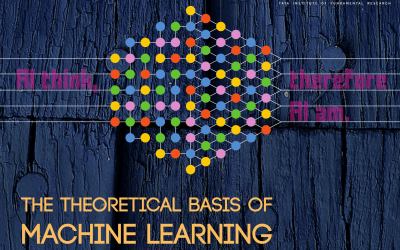ML (Machine Learning) has enjoyed tremendous practical success in the last decade with applications ranging from e-commerce to self-driving cars. The success of deep networks in vision and speech recognition are particularly notable examples. However, the theoretical understanding and characterization of these techniques has not kept pace with the real-world achievements of ML. Traditional approaches such as generalization bounds, stability-based justifications, capacity arguments, regularization etc., have only gone part way towards rationalizing the uncanny success of modern ML methods. In addition there are a number of empirical phenomena such as adversarial examples, effectiveness of gradient descent, failure of NLP GANS, etc., deserving of deeper observational scrutiny and rigorous theoretical treatment. Lastly, there are a number of desirable properties such as explainability, debuggability, ability to selectively ignore discriminatory biases in data, verifiability, etc., that still require to be engineered into ML systems to make them truly non-threatening and useful.
The goal of this workshop is to bring together a leading group of world-class researchers and practitioners to generate a dialog about the important theoretical issues facing ML today. It is expected that the workshop will foster new collaborations between experts leading to the development of novel and non-trivial theoretical breakthroughs. It is also expected that this meeting will benefit junior scientists and practitioners by exposing them to cutting-edge research. Some of the specific technical issues we expect to be discussed include:
• Phenomenology - State of the art developments in applications of Deep Networks
• Theory - Quantitative and Analytic understanding of Deep Learning
• Efficiency - Theory and Techniques for speeding up implementation
The workshop will host about 30 active researchers and 10 students at the inter-disciplinary intersection of games, epidemics and behavior. The researchers will be drawn from computer science, machine learning and statistics. The idea is to encourage small group discussions to enable the participants to develop new research collaborations. There will be several informal seminar-level talks every day.
 icts
icts res
res in
in

